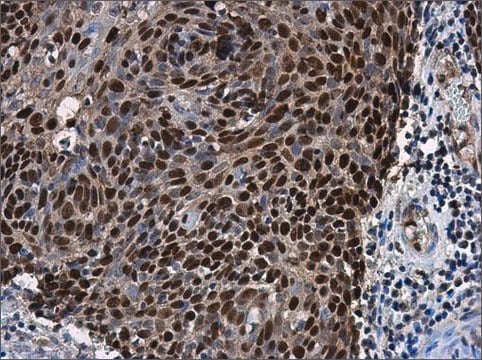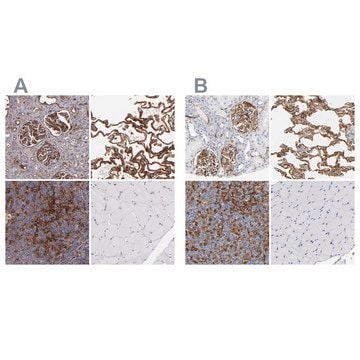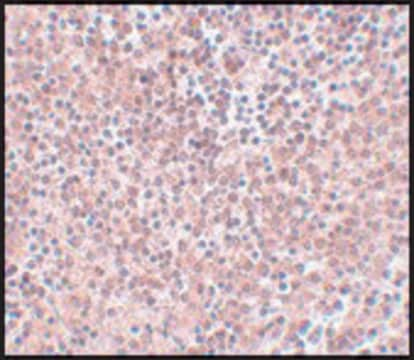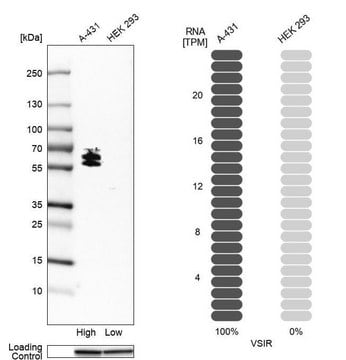N3038
Monoclonal Anti-Nanog antibody produced in mouse
clone NNG-811, purified from hybridoma cell culture
Synonyme(s) :
Anti-NANOG/STM1
About This Item
Produits recommandés
Source biologique
mouse
Niveau de qualité
Conjugué
unconjugated
Forme d'anticorps
purified immunoglobulin
Type de produit anticorps
primary antibodies
Clone
NNG-811, monoclonal
Forme
buffered aqueous solution
Poids mol.
~40 kDa
Espèces réactives
human
Conditionnement
antibody small pack of 25 μL
Concentration
~2 mg/mL
Technique(s)
immunocytochemistry: suitable
immunoprecipitation (IP): suitable
indirect ELISA: suitable
western blot: 4-8 μg/mL
Isotype
IgG1
Numéro d'accès UniProt
Conditions d'expédition
dry ice
Température de stockage
−20°C
Modification post-traductionnelle de la cible
unmodified
Informations sur le gène
human ... NANOG(79923)
Description générale
Nanog controls the expression of many ESC genes together with other stem cell transcription factors like Oct-4 and Sox-2. Nanog targets both repressor and activator complexes to regulatory regions of hundreds of genes in the genome. Expression of nanog can be detected primarily in germ cell tumors and in tumors of other cell types. Nanog is an important marker for Seminomas, testicular carcinomas, teratocarcinomas, and germ cell-like tumors in various tissues. Furthermore, it was shown to transform NIH3T3 cells.
Spécificité
Immunogène
Application
- enzyme-linked immunosorbent assay (ELISA)
- immunoblotting
- immunocytochemistry
- flow cytometric analysis
- immunoprecipitation
- immunofluorescence
Immunoblotting: a working antibody concentration of 2-4 mg/mL is recommended using extracts of NT2 cells.
Forme physique
Clause de non-responsabilité
Vous ne trouvez pas le bon produit ?
Essayez notre Outil de sélection de produits.
En option
Produit(s) apparenté(s)
Code de la classe de stockage
10 - Combustible liquids
Classe de danger pour l'eau (WGK)
WGK 3
Point d'éclair (°F)
Not applicable
Point d'éclair (°C)
Not applicable
Équipement de protection individuelle
Eyeshields, Gloves, multi-purpose combination respirator cartridge (US)
Certificats d'analyse (COA)
Recherchez un Certificats d'analyse (COA) en saisissant le numéro de lot du produit. Les numéros de lot figurent sur l'étiquette du produit après les mots "Lot" ou "Batch".
Déjà en possession de ce produit ?
Retrouvez la documentation relative aux produits que vous avez récemment achetés dans la Bibliothèque de documents.
Notre équipe de scientifiques dispose d'une expérience dans tous les secteurs de la recherche, notamment en sciences de la vie, science des matériaux, synthèse chimique, chromatographie, analyse et dans de nombreux autres domaines..
Contacter notre Service technique







